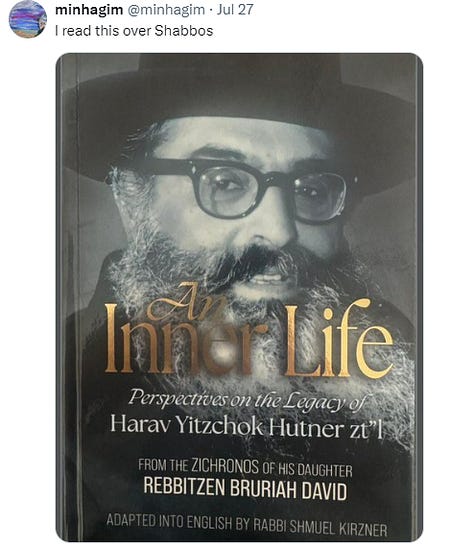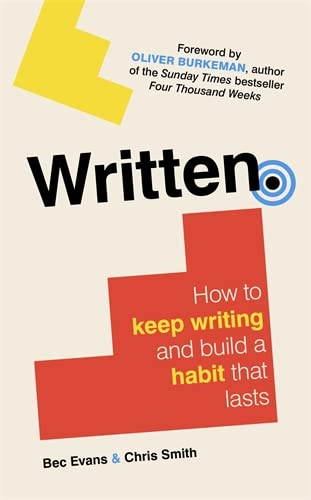Kosher Phones Can Help With Productive Procrastination
Distracting doesn’t have to be a bad thing if you do it the analog way
Before I had kids, I would see parents in the park with their faces glued to their phones while their children tugged on their hands, begging them to come play or to “Look!” And I would judge them: How hard is it to just be present with your kids at the park? I would think, When I have children, I will never be like them.
Then I had my own children, and all my parenting expertise went out the window.
I do try my best to be focused on them when I’m with them, but once in a while, I will guiltily look up from my phone in the park to the sounds of my own daughter’s “Look!” and realize that I, too, have become a mom who is (sometimes!) on her phone when she shouldn’t be.
That’s one of the reasons I've been thinking about getting a kosher phone for a while now. It feels scary to put it out there, but here it is. Being a more present mother is not the only reason that I want a kosher phone. Like most people today, I find myself wasting too much of my precious time on stupid, pointless “content,” and I want to reclaim that time to be put to better use.
So, what is a kosher phone?
Kosher phones were originally adopted by “ultra-Orthodox” Jews (Haredi, Yeshivish, etc.) to avoid the pitfalls of modern technology and the internet. These phones range from those without internet capability at all to those with only limited apps and internet access. Kosher phones are essentially the opposite of smartphones. While the latter offers everything from texting and a camera to GPS and entertainment, kosher phones are simple communication devices without the frills that make the smartphone a “mini-computer.”
So I thought a kosher phone would make me more productive. Without the constant distraction and pull of a phone in my hand or pocket, I would do more, read more, write more. It sounded like a magical cure-all; just get rid of the evil phone and all your dreams will come true.
But then I came back down to earth. Because let’s be real—while smartphones are designed to keep you scrolling, and apps are incentivized to vie for your eye real estate, they aren’t really where the problem starts. Smartphones (I’m using “smartphones” as an umbrella term for all the apps that participate in wasting most of our time) capitalize on the human tendencies that started long before smartphones existed: distraction and procrastination.
I grew up without a smartphone. Did I accomplish anything extraordinary? Did I make the most of my scrolling-free time? No. I still procrastinated, and I still distracted myself when I had things to do and goals to meet.
So how was a kosher phone going to help me?
I was reading Written: How to Keep Writing and Build a Habit That Lasts by award-winning writers, productivity coaches, and co-founders of Prolifiko Bec Evans and Chris Smith when the answer came to me.
They shared a story about Greg, a participant in their writing course. While trying to write his book, Greg used to spend two to three hours cleaning his house every day before starting his writing session. He was frustrated with what he saw as his procrastination problem. While working with Evans and Smith, he realized that his "procrastination" was actually part of his writing process. During those cleaning hours, he was organizing his thoughts, generating ideas, and preparing to write so that by the time he sat down he was ready to write.
This struck a chord with me. I procrastinate, too. Unlike Greg, though, my procrastination isn’t productive. My mind is never not occupied. If I'm cleaning, I'm listening to a podcast or audiobook. If I’m driving, I’m listening to music or talking on the phone. If I’m procrastinating, it is with my mind fully distracted and occupied.
This is the difference I notice too between sitting with my phone and reading a book. When I read, I sometimes just sit and think before I start, letting my mind wander and “space out.” If I read something profound, interesting, or moving, I’ll stop and let it sink in, read it again, and think about it. When I’m on my phone there are no such moments of contemplation, of stopping, there is just the constant rush of the smartphone rapids, never stopping to let your brain catch its breath.
So, while I initially thought a kosher phone would make me more productive and waste less time, I'm not sure it would. A mind that distracts itself with a phone will find other distractions. I’ll probably still procrastinate and wait until the last minute to do things. A kosher phone (sadly) will not be the panacea for my lack of focus and inability to work without a time crunch. But if I switch to a kosher phone my distractions might become more productive, allowing for the time and space to pause and reflect.
By making my procrastination more analog, I can (hopefully!) use the time I spend not doing what I’m meant to be doing by doing other things that allow me to prepare my mind for doing the things I have to do. It’s brilliant. Productive procrastination.
Jonathan Haidt, a researcher on the impact of technology, especially on today’s youth, offers this advice in his book The Anxious Generation (he also writes a Substack called After Babel):
No smartphones before high school. Parents should delay children’s entry into round-the-clock internet access by giving only basic phones (phones with limited apps and no internet browser) before ninth grade (roughly age 14). No social media before 16. Let kids get through the most vulnerable period of brain development before connecting them to a firehose of social comparison and algorithmically chosen influencers … Far more unsupervised play and childhood independence. That’s the way children naturally develop social skills, overcome anxiety, and become self-governing young adults.
Haidt’s advice essentially promotes kosher phones for teens. But why should the experience of living life without “a firehose of social comparison and algorithmically chosen influencers” be limited to only teenagers? Don’t we all want a life where we can develop to our fullest potential without constant social pressure, instant connectivity, and a flood of negative news?
I know I do.
Social media is a tool, but like constantly carrying a hammer in your back pocket, it can lead to injury. Maybe it's time to relegate these tools in the basement, there when you need them, but not a constant companion, hindering your productivity and your procrastination.
Have a great week, and keep reading,
Arty
P.S. Would you ever consider getting a kosher phone? Why or why not?
What did you read over Shabbos?
A selection of shared Shabbos reads
















Love this ! I did research in 2018 on technology and the family. After that I seriously limited my screen time.
For nostalgia (not kashrus) reasons, my dream is someday to get a landline phone, one of those old AT&T devices you never see these days except in old movies.
I see, inter alia, two important advantages to that:
1. I can honestly tell people that I didn't answer their call because I wasn't home to receive it.
2. When I say I'm dialing a number, that will actually make some literal sense.
(Yes, I admit it: I'm not only a hopeless nostalgic, but slavishly pedantic as well. ;)